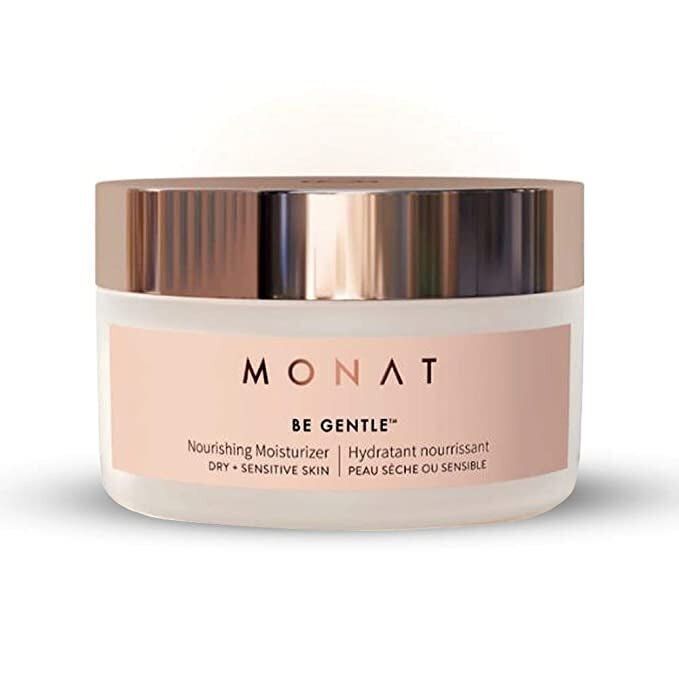
If you’re feeling itchy and dry these days, it’s a good idea to ask yourself a few questions about what’s really going on. Dry skin and eczema may seem similar, but dryness can often clear up with some diligent moisturizing and an exposure to warmer, moister air. Eczema, meanwhile, could require more significant lifestyle changes and possibly even prescription medication.
Anyone who suffers from the condition, also known as atopic dermatitis, will tell you that it’s seriously uncomfortable. “The itch from eczema can be torturous,” said Dr. Ellen Marmur, a board-certified dermatologist and the founder of skin care brand MMSkincare. “In fact, the word derives from the Greek word ‘ekzein’ — ‘to boil’ — because it can feel like intense burning.”
What’s The Difference Between Dry Skin And Eczema?
It can be difficult to discern which condition is which, at least initially. “Dry skin is most commonly related to the person’s environment, like dry air in the winter months or overwashing,” said Dr. Jaimie DeRosa, a double board-certified facial plastic surgeon. “On the other hand, eczema has an immune or genetic origin. Both conditions are not uncommon, and oftentimes people will assume that they just have dry skin while in fact their skin condition is eczema.”
“It’s different from dry skin because a diagnosis of eczema implies skin barrier dysfunction, often due to an underlying mutation in filaggrin, which is an essential skin barrier building block,” said Dr. Courtney Rubin, a board-certified dermatologist who is a co-founder and the chief medical officer of skin care company Fig.1.
“Skin barrier dysfunction means that your skin barrier is ‘leaky,’ dry and dehydrated. Environmental antigens and microbes get through the skin and come in contact with the body’s immune system, leading to inflammation. This leads to the itchy, flaky and red patches of skin that we know as eczema.”
What To Ask Yourself
Here are some questions to help you determine what’s getting under your skin:
1. How old are you? The younger you are, the more likely you are to have eczema. “It affects about 25% of children and 3% of adults, although its prevalence is increasing,” said Dr. Lauren Penzi, a board-certified dermatologist.
“Oftentimes children outgrow their atopic dermatitis by the time they reach puberty,” said dermatologist Dr. Azadeh Shirazi. “In adults, eczema presents differently as hand dermatitis or contact dermatitis, or we may see conditions like seborrheic dermatitis, where a rash develops in the T-zone,” she added, referring to the forehead and nose area of the face.
2. What does it look like — and where is it? “For kids, eczema tends to show up as dry, red, scaly patches on creases like neck, wrists, ankles or behind the knees,” Penzi said. “For adults, it also can appear on the face, neck, upper arms, back, hands and feet. Adults also are more likely to have thicker, scaly plaques.”
On pale skin, plaques typically appear as raised, red patches. On darker skin, they may show as a darker brown or look more purple or gray.
3. How’s your physical health? Atopic dermatitis patients often have experience with asthma, allergic rhinitis or seasonal allergies, as well as a family history of eczema, Penzi said.
4. What about your mental health? “It’s not uncommon for eczema to flare up and be exacerbated due to stress,” DeRosa said.
“It’s been well studied that patients with eczema have higher rates of anxiety and depression compared to the general population,” Penzi added.
5. Are you hitting the concealer harder than usual? “People with eczema may also notice dark areas around the eyes, possibly looking like [the kinds of] dark circles that appear for other reasons,” DeRosa said.
What To Do In The Short Term
“First, don’t shower more than once a day and for no more than 10 minutes. Use warm, not hot, water,” said board-certified dermatologist Dr. Lian Mack.
“Next, use only mild and unscented soap. After showering, pat skin dry and apply a mild, fragrance-free moisturizer, either cream or ointment, to damp skin. When you do the laundry, use a hypoallergenic detergent and avoid fabric softener. In general, stay away from wool, perfume and body sprays, and use a humidifier during dry winter months.”
DeRosa had these suggestions: “If itching is severe, steroid creams or topical creams called calcineurin inhibitors may be used. Light therapy from the sun or from a UV [ultraviolet] device is sometimes a good idea to dry up the lesions, but remember to wear your broad-spectrum sunscreen. For intense eczema that doesn’t let you sleep at night, oral antihistamines or diphenhydramine can help.”
What To Do In The Long Term
Even if you’re not sure whether you have eczema, it’s still a good idea to see a dermatologist.
“I believe the biggest mistake that people make is to continue to live with the itch because they feel that nothing works,” said Dr. Latanya Benjamin, a pediatric dermatologist. “Instead of purchasing multiple online products or trying tons of over-the-counter creams, I recommend seeing a medical doctor who specializes in skin. I always tell my patients that you need to first eliminate the itch in order for the skin to heal.”
“There are many new prescription eczema treatments that have recently hit the market, including a whole new class of drugs targeting a previously untargeted pathway in the skin’s inflammatory process,” said Dr. Rebecca Marcus, a board-certified dermatologist and the founder of skin care company Maei MD. “So please see your dermatologist for help. We have many tools to help with itch and discomfort.”
Moisturizers That Help Treat Eczema
“Choose either an ointment or a true cream,” Penzi said. “Avoid lotions like the kinds found in bottles with pumps, since they have higher water content. Although they absorb quickly, they aren’t as effective for skin hydration.”
If your hands are affected, Marmur suggested using petroleum-based products such as Aquaphor with gloves at night. “They’ll help to lock in moisture,” she said.
The following products were rated highly by the experts that were interviewed.
BuzzFeed may collect a share of sales or other compensation from the links on this page if you decide to shop from them. All products were independently selected by editors, and the prices were accurate and items in stock at the time of publication.
Aquaphor healing ointment
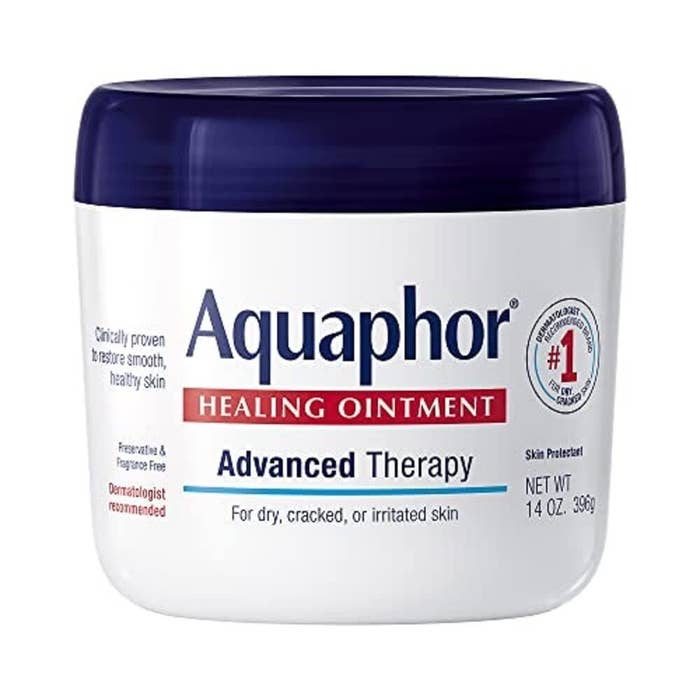
CeraVe eczema relief creamy oil
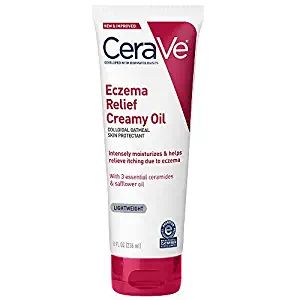
Eucerin eczema relief cream
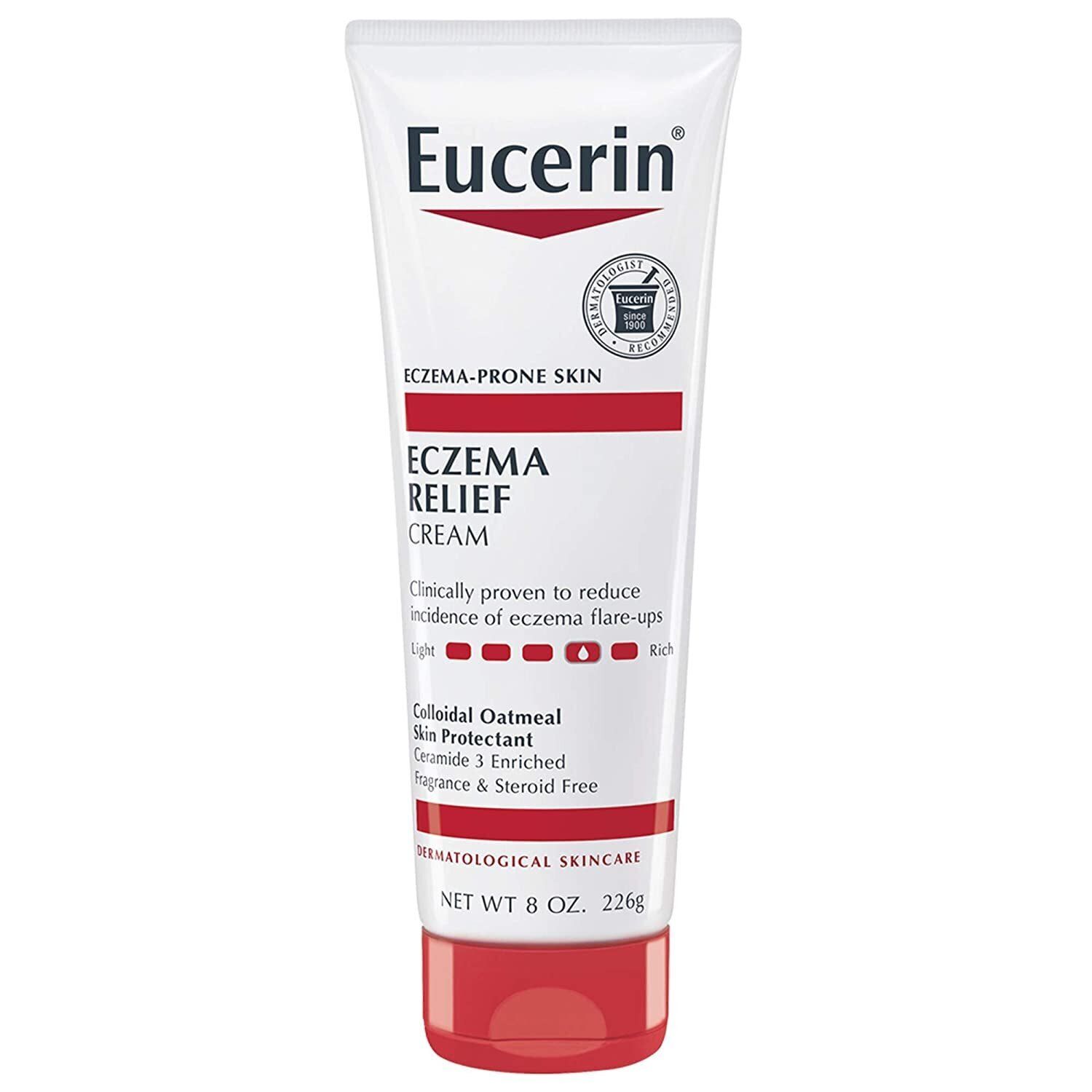
La Roche-Posay's Lipikar soothing relief eczema cream
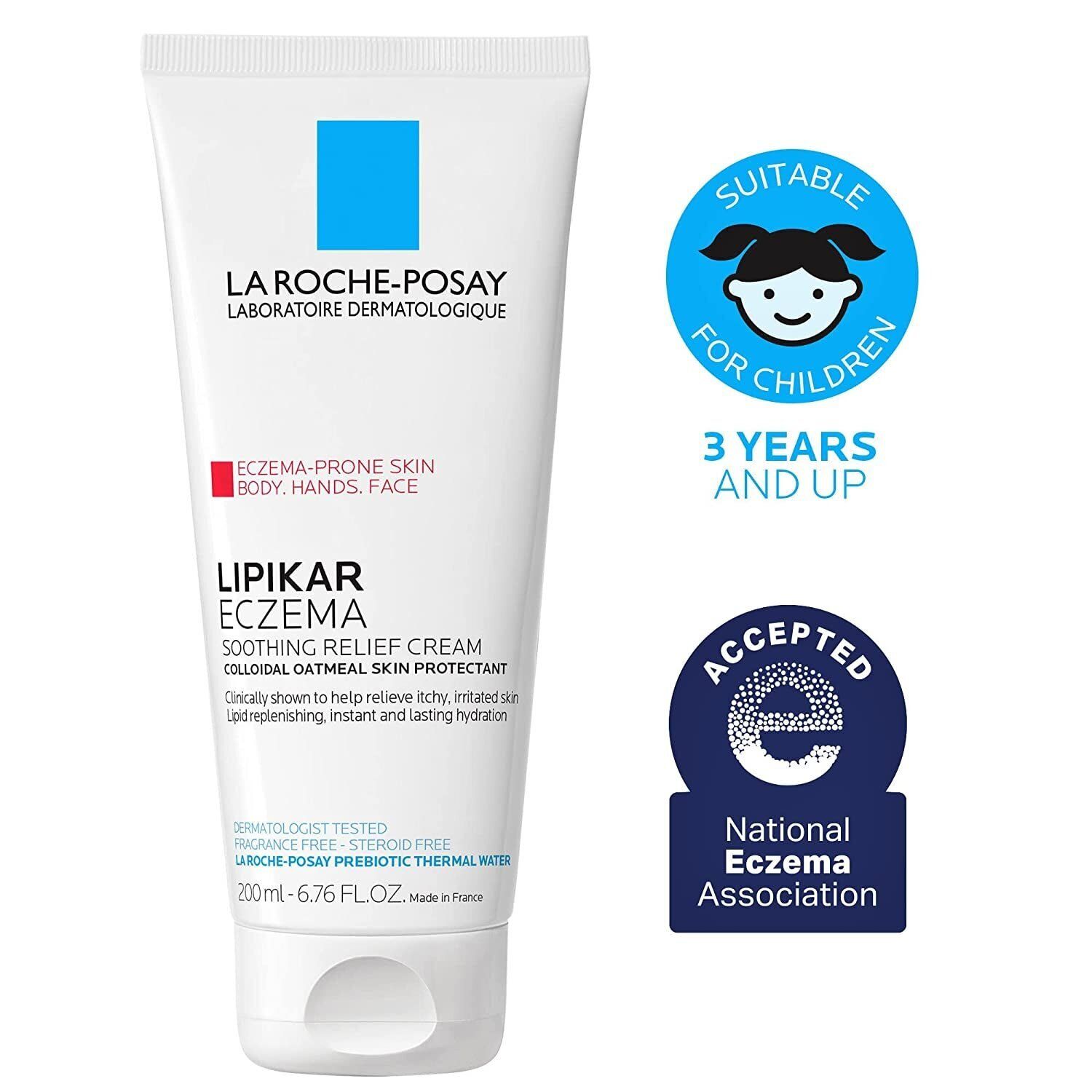
Monat's Be Gentle nourishing moisturizer
